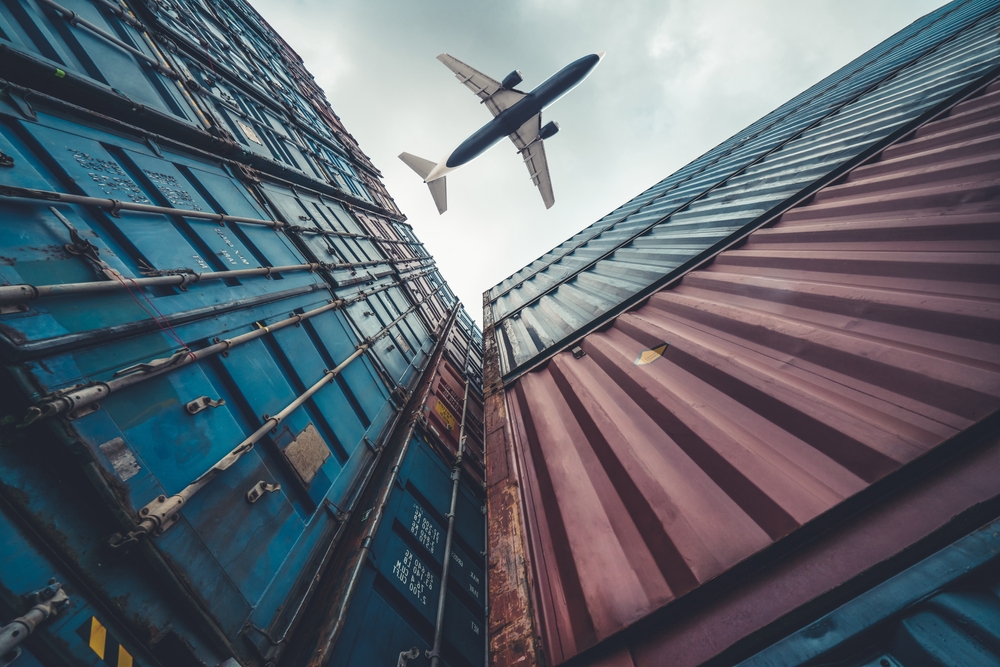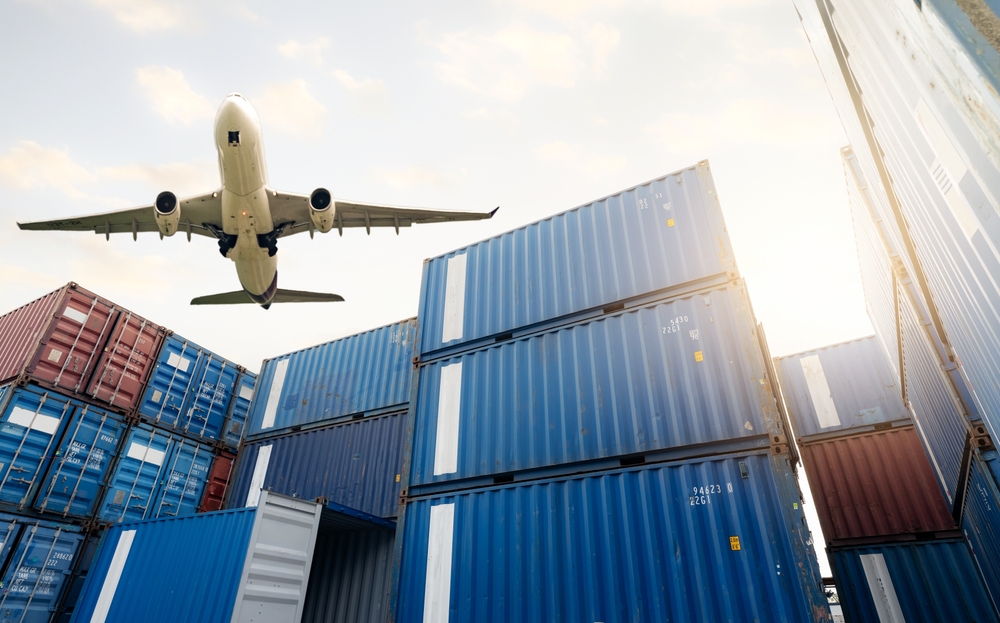The Importance of Sustainable Air Freight in e-Commerce
With sustainability being a major concern that every e-commerce business works in consideration of, understanding the best method of transportation for certain goods can play a major part in a business playing its part against climate change.
In today’s guide, we will be addressing the importance of sustainable air freight in e-commerce.
Radius Warehouse and Logistics is here to provide you with all the information you need when it comes to the multiple areas of logistics that we provide, from sea, to air, to road freight solutions. Operating from the South West of England for over 20 years, or experience, and service is here for anyone who requires it.
What is sustainability?
In the context of businesses, sustainability refers to operating in a way that meets the needs of the present without compromising the ability of future generations to meet their own needs. This translates into practices that focus on three key pillars: environmental responsibility, social responsibility, and economic viability.
Environmental Responsibility
- Reducing Environmental Impact: Businesses can prioritise practices that minimise their environmental footprint. This can involve using renewable energy sources, reducing waste and pollution, and conserving resources like water and raw materials.
- Sustainable Sourcing: Responsible businesses consider the environmental impact throughout their supply chain. This might involve sourcing materials from suppliers who practice sustainable forestry or use eco-friendly manufacturing processes.
- Climate Change Action: Many businesses are taking steps to address climate change by reducing greenhouse gas emissions and implementing strategies to become carbon-neutral.
Social Responsibility
- Ethical Labour Practices: Sustainable businesses ensure fair treatment of workers throughout their operations and supply chain. This includes fair wages, safe working conditions, and upholding labour rights.
- Community Engagement: Supporting the communities where they operate is an important aspect of social responsibility. Businesses can do this through charitable giving, volunteering initiatives, or creating local jobs.
- Diversity and Inclusion: Creating a diverse and inclusive workplace fosters innovation and strengthens a company’s reputation. Sustainable businesses strive for equal opportunities and fair treatment for all employees.
Economic Viability
- Long-Term Thinking: Sustainable businesses take a long-term view of their success. This means considering the environmental and social impacts of their decisions alongside short-term profits.
- Innovation: Developing sustainable products, services, and processes can give businesses a competitive edge and lead to long-term financial success.
- Risk Management: Considering environmental and social risks, such as climate change regulations or labour unrest, helps businesses prepare for the future and ensure long-term financial stability.
Benefits of Sustainability for Businesses
- Enhanced Brand Image: Consumers are increasingly drawn to companies that prioritise sustainability. Sustainable practices can attract and retain customers who value environmental and social responsibility.
- Cost Savings: Reducing energy and resource consumption, minimizing waste, and improving efficiency can all lead to cost savings for businesses.
- Improved Employee Engagement: Employees are more likely to be motivated and engaged when they work for a company that values sustainability.
- Resilience: Sustainable businesses are better prepared to adapt to future regulations, resource scarcity, and changing consumer preferences.
How does sustainability help e-commerce?
By embracing sustainable practices across the entire freight spectrum, e-commerce businesses can achieve several benefits:
- Reduced Environmental Impact: Lower emissions throughout the supply chain contribute to a greener planet and a more sustainable future.
- Enhanced Brand Image: Consumers are increasingly drawn to eco-conscious companies. Sustainable practices can attract and retain customers who value environmental responsibility.
- Improved Efficiency: Optimised routes, eco-friendly vehicles, and efficient packaging can lead to cost savings in the long run for e-commerce businesses.
- Future-Proofing: As environmental regulations become stricter, businesses that prioritise sustainability will be better positioned to adapt and thrive.
The importance of sustainable air freight in e-commerce

Sustainable air freight is crucial for e-commerce because it helps balance the rapid growth of the industry with environmental responsibility.
The e-commerce boom has led to a surge in air freight, which is a significant contributor to greenhouse gas emissions. Sustainable air freight practices aim to reduce this environmental impact.
In addition, today’s e-commerce customers are increasingly environmentally conscious. Companies that prioritise sustainable practices can attract and retain customers who value eco-friendly options.
Sustainable solutions are now in practice, like using fuel-efficient aircraft, optimising flight routes, and implementing efficient ground handling procedures can contribute to lower operating costs for air freight companies, benefitting e-commerce businesses in the long run.
The switch to an eco-conscious business model has come at a good time, as environmental regulations around emissions are likely to become stricter in the future. Embracing sustainable practices now helps e-commerce businesses prepare for these changes and avoid potential disruptions.
Here are some examples of how sustainable air freight is being achieved:
- Modern Aircraft: Airlines are investing in newer, more fuel-efficient aircraft that produce fewer emissions.
- Biofuels: The use of biofuels derived from sustainable sources is being explored as an alternative to traditional jet fuel.
- Optimised Routes: Air freight companies are implementing software and data analysis to optimise flight paths, reducing fuel consumption and emissions.
- Efficient Ground Handling: Streamlining ground handling procedures at airports can minimise idling time for aircraft, further reducing emissions.
- Carbon Offsetting: Some companies offer carbon offset programs that allow e-commerce businesses to invest in projects that reduce carbon emissions elsewhere, compensating for the emissions generated by their air freight.
By prioritising sustainable air freight practices, the e-commerce industry can continue to grow while minimizing its environmental footprint. This is a win-win situation for businesses, environmentally conscious consumers, and the planet as a whole.
Is sustainability applicable beyond air freight?
Absolutely! Sustainable practices can be applied throughout the entire e-commerce logistics chain, beyond just air freight. Here’s a closer look at how other freight options can embrace sustainability:
Ocean Freight
- Larger Vessels: Utilizing larger, more efficient cargo ships can significantly reduce the overall emissions per unit of cargo transported.
- Slow Steaming: While it might extend shipping times slightly, slower cruising speeds can dramatically improve fuel efficiency for ocean freight.
- Route optimisation: Similar to air freight, optimising shipping routes for ocean vessels can reduce fuel consumption and emissions.
- Eco-Friendly Ports: Ports that invest in renewable energy sources and implement stricter emission regulations for docked ships can contribute to a greener shipping industry.
Ground Transportation
- Hybrid and Electric Vehicles: Shifting to electric or hybrid trucks for ground delivery can significantly reduce emissions, especially for shorter distances.
- Route Optimisation: Just like in air and ocean freight, planning efficient delivery routes for ground transportation minimises fuel consumption and emissions.
- Last-Mile Consolidation: Combining multiple deliveries into fewer trips through strategic consolidation centres can significantly reduce the number of delivery vehicles on the road.
- Urban Warehousing: Strategically locating warehouses closer to urban centres can minimise the distance travelled for last-mile deliveries.
Are there any Sustainability laws for UK businesses?

Yes. UK businesses navigate a landscape of sustainability laws that promote environmental responsibility and social fairness. These laws work together to protect the environment and ensure ethical treatment of workers.
Environmental Sustainability:
A cornerstone of environmental sustainability is the Environment Act 2021. This act sets ambitious goals, including achieving net-zero emissions by 2050. It also strengthens enforcement of existing environmental regulations. The Climate Change Act 2008 builds on this by requiring the government to set carbon emission reduction targets and implement policies to achieve them. Businesses in certain sectors might need to report their emissions and offset them through carbon credits.
Waste reduction, reuse, and recycling are central to the Waste and Resources Act 2011. This act sets targets and places obligations on businesses to manage their waste responsibly.
The Producer Responsibility Obligations (Packaging Waste) Regulations 2019 require businesses that produce packaging to contribute financially to the collection, sorting, and recycling of that packaging waste.
Additionally, the Restriction of the Use of Certain Hazardous Substances in Electrical and Electronic Equipment Regulations (RoHS) limits the use of specific hazardous materials in electronics sold within the UK.
What happens if you break sustainability laws?
Breaching environmental sustainability laws in the UK can bring a heap of trouble down on a business. Here’s how it can play out:
Financial Penalties
Fines can range from hefty sums imposed by magistrates’ courts (up to £50,000) to truly eye-watering unlimited fines doled out by Crown Courts. On top of that, there can be court orders forcing the business to pay for cleaning up any environmental mess they created. And let’s not forget lost revenue – if a business is shut down or restricted due to non-compliance, the money stops flowing in.
Reputational Damage
Environmental offences become public knowledge thanks to the Environment Agency naming and shaming convicted businesses. This bad publicity can severely tarnish a company’s reputation and erode customer trust.
Operational Limitations
Breaches can lead to permits being revoked, essentially crippling a business’s ability to operate. Investigations and enforcement actions can also cause delays in production, bringing everything to a standstill.
Criminal Charges
In the most serious cases, environmental breaches can lead to criminal charges against individuals within the company, including directors or managers. Imagine the legal costs and potential personal repercussions on top of everything else.
Enquire for air freight services today

We at Radius Warehouse and Logistics Services encourage you to get in contact with us to see how our services can benefit you. Alternatively, you can get a quote from us directly, or visit our help and advice page for anything further you may need help with.
We hope that our guide has shown you the importance of sustainable air freight in e-commerce, whilst providing helpful supplementary information.
With over 20 years of experience as an independent freight forwarder, you can expect quality service from us. In addition to being a member of BIFA, and trading under the standard trading terms of BIFA, We are also staffed by a dedicated core of enthusiastic and efficient professionals.
Our staff’s many years of experience in this industry welcomes your enquiries and hope you can join our loyal and superb client base.


